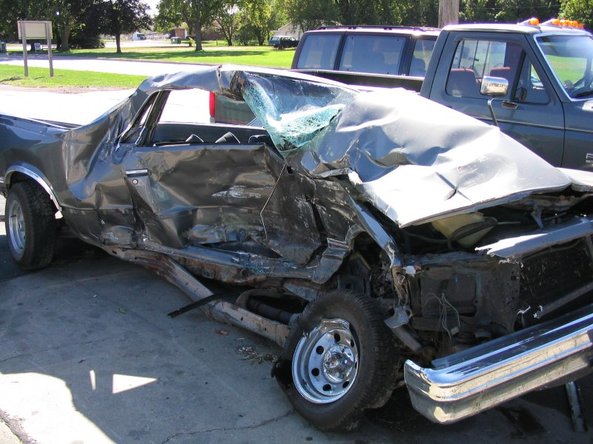CHRONIC NECK PAIN
FACTORS THAT WORSEN THE ACCIDENT AND THE INJURY
In most cases, the tissue that tends to sustain the most injury via whiplash is the Fascia. As you will see, this presents its own unique set of problems. Because Fascia is arguably the single most pain-sensitive tissue in the body; and because it cannot be imaged well even with advanced techniques such as MRI, the fallout can be disastrous —- the PERFECT STORM OF CHRONIC PAIN. Fortunately for my patients injured in such manner, a large part of my practice is predicated on dealing with these underlying FASCIAL ADHESIONS. In fact, if you watch my VIDEO TESTMONIALS, you’ll notice that I have a special emphasis on patients that have been injured and in pain for years —- or even decades. One thing more thing to understand is that you can have a whiplash injury from things other than a car accident. Here are my blog posts on CHRONIC NECK PAIN and WHIPLASH.
FACTORS THAT HAVE BEEN SHOWN BY PEER-REVIEWED STUDIES TO WORSEN THE EFFECTS OF A WHIPLASH INJURY
- UNAWARE: One of the biggest myths pertaining to whiplash injuries has to do with whether or not you realize beforehand that you are going to be in an accident. Think about this in terms of football. The person who gets blindsided always gets the worse end of the deal. This bullet point is thought to be the number one factor for potentially making an injury worse. In fact, I have seen experts who claim that being ‘unaware’ of the impending accident can make the likelihood of injury up to 1,500% greater.
- FEMALE: This is the number two factor in determining who tends to get the short end of the stick in a whiplash accident. Men typically have more muscle mass than women. Less muscle mass in a female equals more potential tearing of soft tissues.
- HEADREST (HEAD RESTRAINT) POSITIONED INCORRECTLY: Properly positioning your head-restraint is the number one thing you can do to potentially lessen the effects of an MVA on your spine —- particularly in a rear-ender. Incorrectly positioned headrest (too low) can actually make a whiplash injury worse by acting as a fulcrum for your neck as your head slams backwards.
- SLICK ROADS: Wet, Icy, or Slick roads (or gravel for that matter) makes it much more difficult to stop due to lack of friction. It also makes the transfer of energy from the accident to your neck / spine much greater. Slick or worn out tires goes right along with this category.
- DRIVING AN AUTOMATIC: Automatic transmissions are almost ubiquitous today. A manual transmission will minimize the acceleration of your vehicle after it has been impacted.
- LARGE BULLET VEHICLE / SMALL TARGET VEHICLE: If you are driving a vehicle that is small and light, which gets struck by a larger vehicle, you could be in for trouble. Think about the game of football here.
- SLOW TARGET VEHICLE / FAST BULLET VEHICLE: Again, think of the game of football here.
- PRE-EXISTING ARTHRITIS: There are millions of people walking around with DEGENERATIVE ARTHRITIS, yet do not have pain. A whiplash-like accident can wreak havoc on these people by de-stabilizing a stable situation. Once the neck has been de-stabilized, it can be very difficult to re-stabilize. Just be aware that the Insurance Company will use this bullet point against you at every opportunity.
- ELDERLY: Elderly people are simply less flexible than younger people. This means that the neck does not have to be thrown as far until the soft tissues start to tear. This point goes hand in hand with the previous point
- ANGLED IMPACTS: If your head is turned at impact, or if your accident is a not directly from the front or rear (see the pic of the side-impact at the top of the page), the potential for injury is greater —– much greater.
- WEARING A SOFT COLLAR FOR MORE THAN TWO WEEKS: While this is not nearly the problem it was 20 years ago when doctors thought that soft collars were the greatest thing since sliced bread, it is still a problem in certain parts of the world or with doctors who are still living in the 1980’s. Unless you have a fracture or instability, you need motion for the healing process.
- LITIGATION OR NO LITIGATION: In a meta-analysis of numerous similar studies, the June 2012 issue of the journal Pain said that there was no relationship between the long-term effects of whiplash injuries, and whether or not a person received a financial settlement for their injuries. In fact, I have a study that shows that even though people who hire attorneys for whiplash-like injuries due to MVA get substantially better settlements than those who do not hire an attorney, they actually end up with less money in their pocket. Who gets it? You already know the answer to this one — the attorney of course. After OUR ACCIDENT about 8 years ago, we used a $20 online book by Dan Baldyga on settling our own claim.

